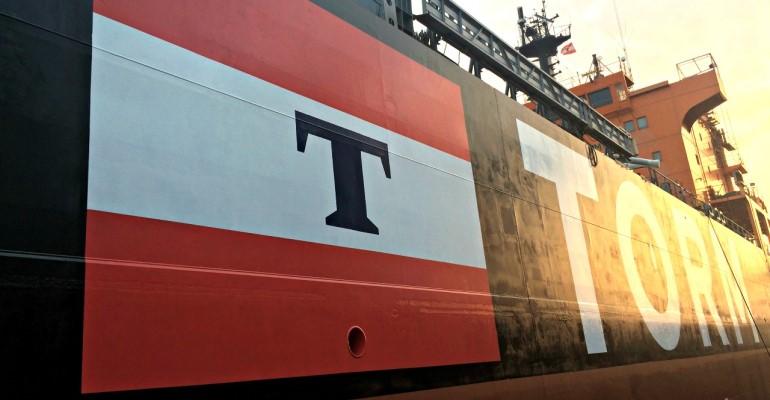Along with its financial results for 2022, Torm today announced the refinancing of $433m of bank and leasing agreements, pushing their debt maturities to 2028 with possible extensions to 2029. Financing commitments were also arranged with the same expiration for up to $123m for new vessels.
Torm said it has agreed to but three MR eco tankers built in 2013 at a tier 1 Korean yard. The purchase will be covered by $48.5m in cash and the issuance of 1.42m shares. Delivery if the vessels is expected by the end of May and will bring the Torm fleet to 88 vessels.
The new refinancing agreements include a syndicated facilities agreement with six to nine banks of up to $322m to refinance 21 vessels built between 2009 and 2020, and a bilateral agreement with Hamburg Commercial Bank (HCOB) of up to $111m, refinancing 26 vessels built between 2003 and 2008.
“Together with this strong group of banks, we have secured a refinancing on very attractive terms, and I feel confident that we have set the group of banks for the years to come that can assist us in growing Torm’s business,” said CFO Kim Balle.
Torm’s 2022 annual report showed a record EBITDA for the year of $743m, up from $137m in 2022. The increase in revenue was fed by an increase in average time charter equivalent (TCE) earnings of $34,134 per day, up from $13,703/day in 2021.
In its market outlook, Torm said it expects further tonne-mile support as Russia looks for new customers for its oil exports and the UK and Europe look for new suppliers to cover their oil and product needs. Refilling oil inventories will also support tanker demand, said Torm, as a lag in refinery output as oil demand recovered led to draw down of inventories.
“2022 was a year where the geopolitical landscape was changed dramatically, and we were all confronted by the tragic Russian invasion of and subsequent war in Ukraine. Since the beginning, TORM decided to cease activity with Russian cargos and Russian harbours completely,” said Christopher H. Boehringer.
CEO and executive director Jacob Meldgaard added: “The war meant that Europe had to import refined oil from further away, and together with supportive fundamentals, such as close-down of refineries in distant regions of the world as well as the limited number of new vessels coming to the market, this increased the imbalance between supply and demand. Consequently, a constant high utilization of the world fleet led to record high product tanker rates and the strongest result on record for Torm.”
Copyright © 2024. All rights reserved. Seatrade, a trading name of Informa Markets (UK) Limited.
Add Seatrade Maritime News to your Google News feed.  |

